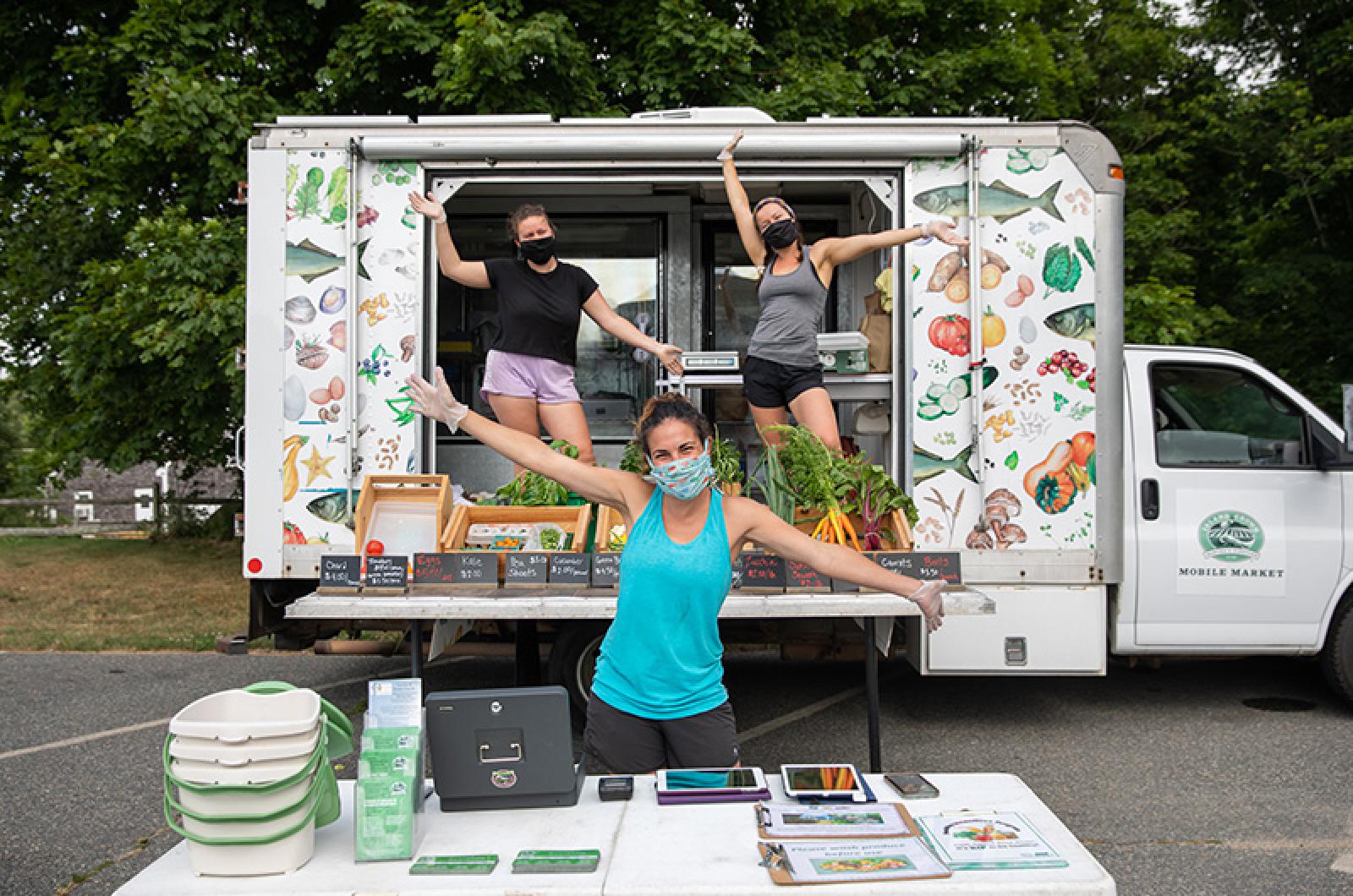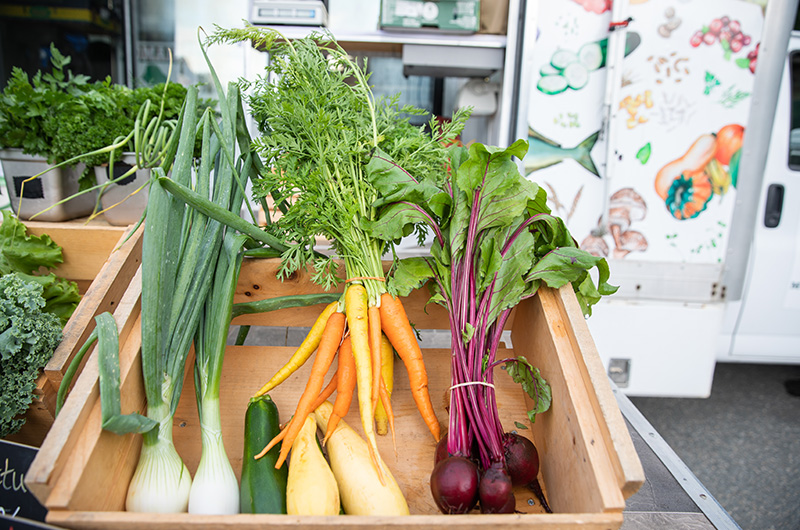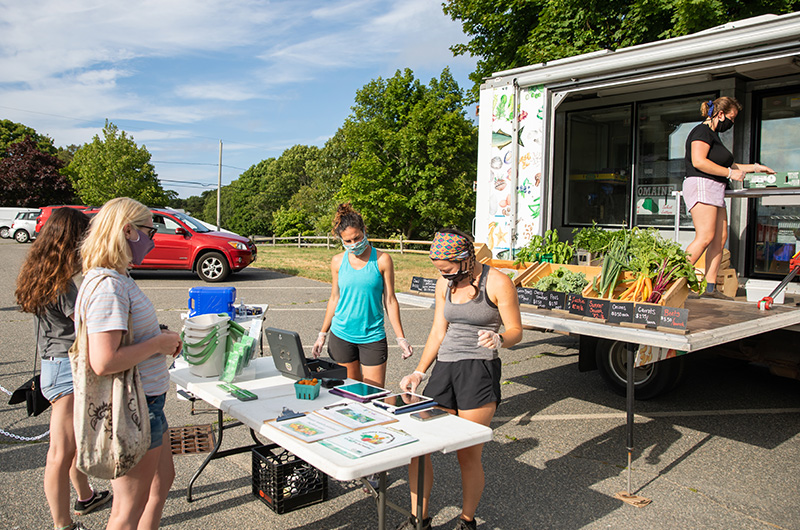Last week, Island Grown Initiative’s mobile market hit the road for its fourth consecutive summer, distributing affordable produce and fresh eggs to communities around the Island.
Bearing crates of kale and heirloom tomatoes, the mobile market plans to visit four different Island locations each week this summer. The weekly schedule had to be adjusted this year due to the pandemic, condensing its usual six-stop circuit to four stops: Oak Bluffs Library, Martha’s Vineyard Hospital, Aquinnah Tribal Housing Building and St. Augustine Church in Vineyard Haven. The market has also added an additional delivery service for its customers at Woodside Village who are at higher risk of contracting the virus, and the option of pre-ordering online.
Program leader Alli Fish said the market alters its location stops every year to meet food equity needs on the Island.
The mobile market opened in 2017 with a mission to sell healthy, locally grown food to Islanders at neighborhood locations accessible by bus, with an emphasis on serving community members who participate in food assistance programs. Since the onset of the pandemic, the market’s role in the community has intensified. Along with other challenges, the pandemic has significantly increased the volume of people who rely on food distribution programs, said Ms. Fish, citing high demand at the Island Food Pantry this season.
In response to the problem, farms and providers across the Island have increased their food production and distribution network. IGI also recently merged with the Island Food Pantry so the two organizations could work together to meet the needs of the community.
The impact of the season’s increased demand is already evident, said Ms. Fish, noting that in its first week on the road the market has already sold twice the volume of produce it did in the same week last summer.
“We weren’t sure what was going to happen this year or if anybody was going to come,” said Ms. Fish. “But we really served a lot of people just last week and I feel like it’s only going to increase throughout the summer.”
With a focus on affordability, the market sources its produce from participating farms like Slough Farm and Morning Glory Farm and charges wholesale prices. The market also grows a sizeable percentage of its produce at IGI’s gardens to further minimize costs.
“The business model is really to serve the needs of the Island communities and fill a niche that’s not being met,” explained Ms. Fish.
As part of its mission, the market accepts payments through the Supplemental Nutrition Assistance Program (SNAP), and allows customers to maximize their benefits through the Healthy Incentive Program (HIP), which credits back money spent on local produce, dollar for dollar. This year, the market has expanded its payment possibilities, accepting coupons from other nutrition-geared programs like the Pandemic EBT program, which provides people who are newly food insecure with benefits like the SNAP program’s.
Looking ahead to the fall, Ms. Fish said that the organization has begun to brainstorm creative solutions for how best to continue selling produce in an outdoor format as temperatures get cooler.
“We’ll have to make game-time decisions but we’re still fully focused on having the mobile market open all the way until February with no break,” she said.
As for this summer, with the market’s first full week coming to a close, Ms. Fish reflected on the business’ success so far. She smiled as she chatted with a customer about a recipe for this week’s cherry tomatoes.
“Food is the one thing everybody’s continuing to enjoy right now,” she said. “If we can help people enjoy it, then that would be great.”









Comments
Comment policy »